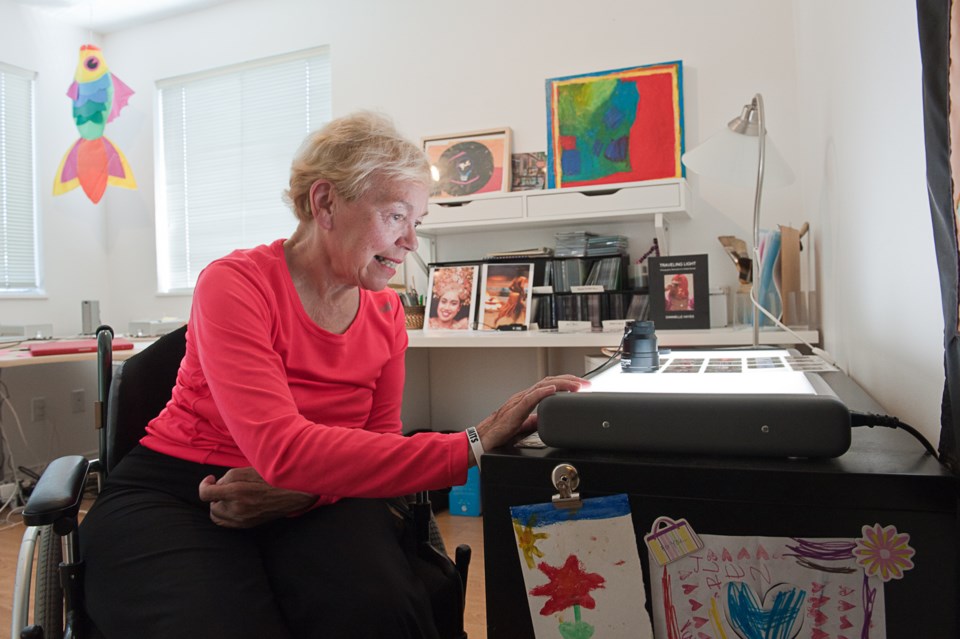Fairview senior Dannielle Hayes’ life changed forever Oct. 4, 2010.
One minute Hayes was a fit, globetrotting 67-year-old photojournalist happily visiting her grandchildren in California, the next minute she was inexplicably sobbing and her left side was completely paralyzed.
Hayes is just one of 6,500 British Columbians each year who will experience a stroke — when brain cells suddenly die because of a lack of oxygen and glucose caused by an interruption of blood flow.
Almost four years later, Hayes can’t use her left arm or hand and walks with a cane. The stroke also impacted her speech, so she sometimes slurs her words.
Hayes’ physical impairments meant the end of her successful 40-year photography career, which included documenting events for the United Nations, the World Bank and the 2010 Paralympic Games in Vancouver.
But she is quick to point out her life has gone on. In fact, Hayes views her stroke as a positive.
“I have finally been able to slow down and take stock of my life and what has happened before and where I am at now and how I can make improvements. It is as if I have had another chance to improve my life, because otherwise I would be bopping around the world and taking photographs and doing the usual against deadline. I always said that I would never retire until I dropped in my tracks, well, I think I dropped,” she said, with a laugh.
Strangely, Hayes’ memory improved after the stroke, enabling her to recall past events and people’s names easier than she could before, a skill that comes in handy.
“You get better service when you can remember people’s names,” she said.
Her life is different than it was, but she is still active and productive.
Hayes gets around town on her electric scooter, which she calls her “babe-mobile,” and has continued working, but for herself this time. She wrote a book, Traveling Light: Photographic Memories of a Global Nomad, has a YouTube channel and takes pictures with her iPhone or her new digital camera, which she can operate with her right hand.
Hayes has come a long way from the early days after the stroke when she was airlifted back to Vancouver and woke up in hospital, unable to walk.
Recovery has been an ongoing journey Hayes works hard at. She goes to physiotherapy once a week, water therapy twice a week, exercises often (she enjoys adaptive yoga and kayaking) and she’s cut coffee and red meat out of her diet. She also maintains a social life and sits on the communications committee of the not-for-profit Stroke Recovery Association of B.C.
Hayes’ advice for recent stroke sufferers is simple.
“Don’t give up on yourself,” she said.
According to Tim Readman, executive director of the association, Hayes demonstrates there is life after stroke.
“But you have to do the right things,” he said.
Readman said science has shown the brain has neuroplasticity, meaning given the right stimulation, it can heal itself. The association promotes seven steps to recovery. These include, physical and mental exercise, communicating, socializing, getting support from others or a group, maintaining a healthy lifestyle and accessing resources in the community.
“The things that we see show us that if a person keeps on trying and keeps on working and keeps a good routine going with all of these activities in their day, that they are able to live healthy, rewarding, productive lives.”



